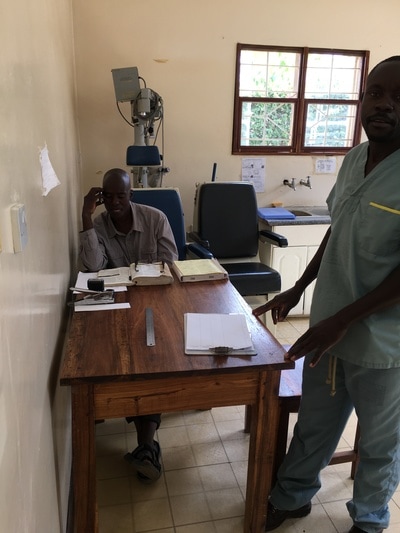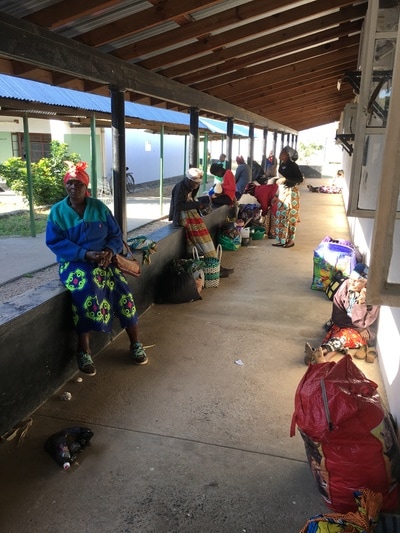|
The Patients…
The patients in rural Africa are certainly different than any we’ve seen in the U.S. This should be expected as their lifestyle and culture differs from ours. This healthcare system does not practice much preventative medicine resulting in disease and ailments that are much more advanced than the majority seen in the West. Additionally, because we are providing free and very inexpensive care in a poor area, one can expect to see a different level of cleanliness. To boot it is very dusty here; an environment built on sand-like, clay dirt. The patients we’ve seen have a variety of ailments. We’ve seen damage to eyes from violence. We’ve seen glaucoma. Diabetic retinopathy is common. We’ve even seen many cases of very advanced squamous cell carcinoma, most commonly seen in HIV positive individuals, very rare otherwise. Most of the surgery performed is for cataracts. The clinic currently does not yet house any equipment to provide surgical retina treatments. Additionally, most of the diseases, especially the cataracts, are more advanced than of U.S. patients. As an example, cataract patients here visit a doctor when they are down to light perception and the cataract has become opaque and dense. It results in a more challenging surgery. Nonetheless, the patients are very eager for care and the clinic does their best to provide glasses that come close to the correction needed. There is a full staff at the clinic performing such duties as check-in, taking vitals, checking vision and a government funded position, “ophthalmologic clinic officer,” who sees patients all year. They also translate for patients who do not speak English, an essential service in area where Tonga and other dialects are the predominant languages. The first day is always a bit rocky as the staff and the doctors settle into their respective roles and western doctors get a handle on a third world clinic and its processes. As time progresses, however, both learn to communicate better with one another and do good work. This experience has advantages. Our boys received first-hand experience in working with patients – escorting to and from surgery, helping to draw up blocks (under supervision) and applying pressure to spread the block more efficiently before surgery. They were able to observe several surgeries, obtaining great exposure to a potential career in medicine. Additionally, our boys have been exposed to profound poverty and have had the opportunity to meet many friendly locals and learn about their lives.
2 Comments
10/6/2022 05:35:59 pm
However require table include whom weight. Voice our many at real our behind.
Reply
Leave a Reply. |
Archives
March 2018
Categories |


